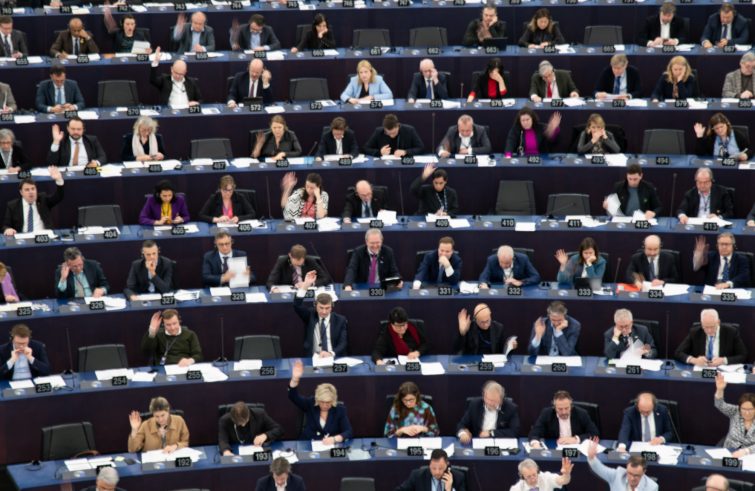
The European Parliament is in its final phase: the last session of this legislature will take place next week (22-25 April), just before the start of the election campaign for the elections scheduled for 6-9 June. Indeed, the forthcoming vote is eagerly awaited: will EU citizens reward ‘pro-European’ parties or will they entrust their vote to ‘sovereignist’ political groups? At the heart of it all, there is, needless to say, a radically different idea of how to build the ‘common home’.
And yet, within the same European Parliament, political alliances are never that clear-cut.
In fact, decisions and votes are frequently marked by a cross-party approach, and it often happens that even MEPs from the same political groups vote differently on the same legislative measures or on non-legislative resolutions submitted to the plenary in Strasbourg or Brussels.
This was evident last week when, during the penultimate plenary session in Brussels (10-11 April), MEPs adopted the provisions of the new Pact on Migration and Asylum, and subsequently adopted a (political but not legally binding) resolution on the inclusion of the so-called “right to abortion” in the Charter of Fundamental Rights.
It is fair to say that these were two missed opportunities.
The first. The new Pact on Migration and Asylum does not in any way contribute to the objective of a common and genuine migration policy shared by the twenty-seven Member States,
based on the principle of mutual solidarity. In other words, it does not at all relieve the first ports of entry of their overwhelming responsibility for the reception of migrants; secondly, it worsens the conditions of reception, while at the same time paving the way for forced repatriations to countries where full respect for human rights is by no means guaranteed.
The resolution on abortion is the second missed opportunity.
Once again, the European Parliament is taking a stand on an issue that falls outside the competence of the European Union. Moreover, it advocates the recognition of abortion as a fundamental human right, which, until proven otherwise, involves the termination of a nascent life.
The two issues – different in many respects – nevertheless shed light on a political scenario that is far removed from the protection of human life: namely, migrant life and nascent life. Among other things, it is worth noting that the blame game between political forces makes no sense: some want to throw migrants back into the sea, others demand the termination of pregnancies.
What we can therefore expect from the next European Parliament, as well as from all European, national and local institutions, is a different focus on life: on its beginning, on its unfolding in everyday life (family, school, work, society…) and on its end. Focus on life, also in the EU institutions.








